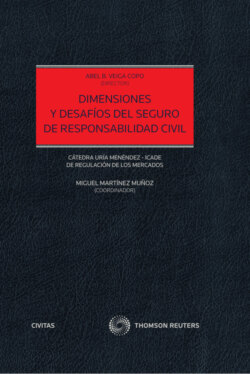Читать книгу Dimensiones y desafíos del seguro de responsabilidad civil - Abel B. Veiga Copo - Страница 103
На сайте Литреса книга снята с продажи.
A. The NCOIL Attacks
ОглавлениеSounding the same note in more shrill tone was commentary from the National Conference of Insurance Legislators (“NCOIL) which argued that the Restatement Project “Violates ‘Legislative Prerogative’34”. The NCOIL position was that the RLLI has in several instances made “significant changes to current law” and that “[s]uch matters are the primary prerogative of the legislative branch of government” consisting of elected officials who “must consider all relevant policy considerations such as the impact of proposed law changes on the availability and affordability of insurance35”. The NCOIL letter implied that the RLLI provisions would undermine both state insurance regulation and insurance markets36. But NCOIL specifically noted only four supposedly bad aspects of the then 51-Section 2017 RLLI37.
Space limitations prevent a point-by-point refutation of the NCOIL assertions but some ink should be spilled correcting the more egregious claims. The RLLI position on contract construction in the 2017 draft was not the radical departure asserted by NCOIL but was consistent with a substantial amount of case law, which reflects courts taking policy text seriously but utilizing extrinsic evidence, intent, purpose, and function of policies – approach to ambiguous terms set forth in RLLI §438. Nonetheless, the ALI responded to insurer criticisms that the 2017 draft was not sufficiently deferential to insurance policy text and revised the portion of the RLLI39.
As reflected in its ability to obtain the gubernatorial letter and pro-insurer changes that took place in the RLLI after 2017, NCOIL has proven itself to be an advocacy organization with more than a little clout. This makes its contention that it had “just recently learned of” the RLLI and its arguably problematic provisions40 a bit hard to accept at face value. On this point, as with professed state regulator ignorance, it is hard to imagine that a group purporting to carefully follow insurance matters could claim to have been unaware of the ALI Restatement project for a half-dozen years. A claim of being “surprised” by the RLLI rings particularly hollow when one considers the number of prominent insurer representatives who were involved in the projects as Advisers41 or MCG members or who had written about the RLLI in the trade press42 or who had given presentations about the RLLI at large gatherings of insurer attorneys43. Is it possible the NCOIL, which claims to be a voice of the insurance industry, had none of its members in any communication with any of these people for six years?
